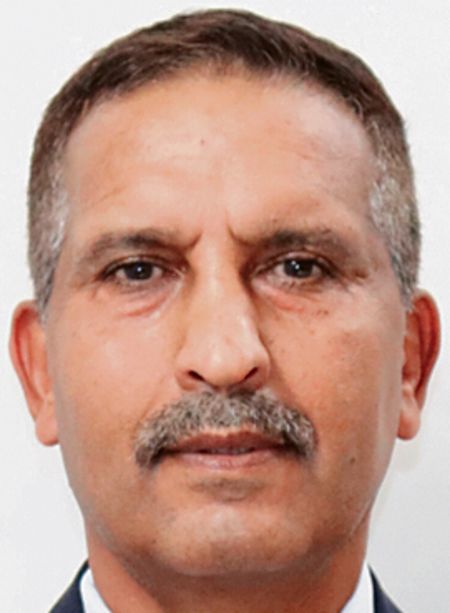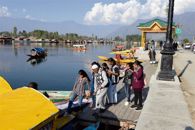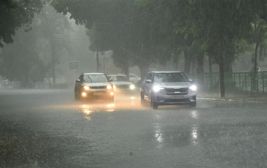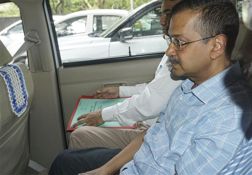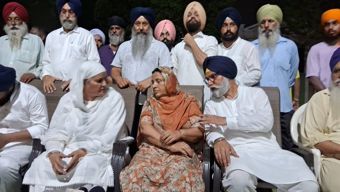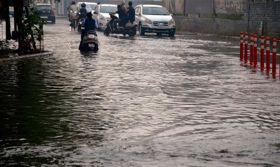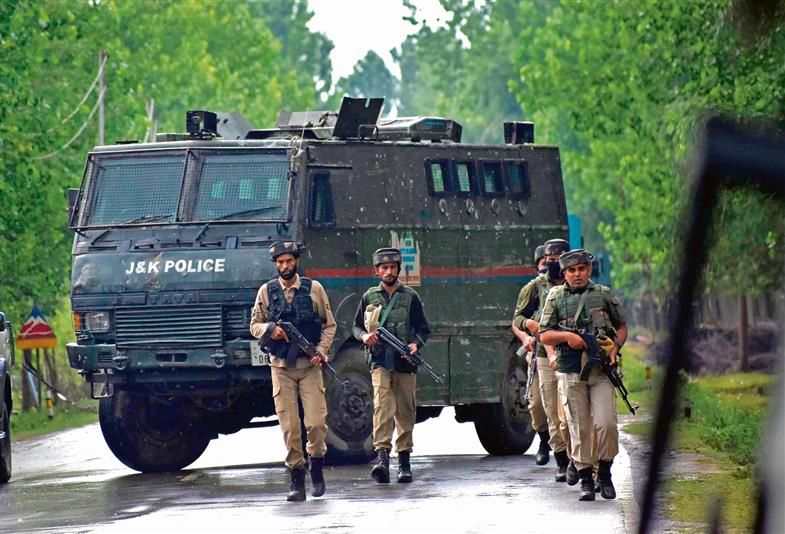
Caution: The gains made by the security forces should not be frittered away. ANI
Lt Gen SK Saini (retd)
Former Vice Chief of Army Staff
LAST month, terrorists opened fire on a bus carrying pilgrims returning from the Shiv Khori shrine in Reasi. The driver lost control of the bus, causing it to veer off the road and plunge into a gorge. Nine people were killed and 33 others injured. PM Narendra Modi chaired a review meeting days later to assess the situation in Jammu and Kashmir after a spike in terror incidents. He was given an overview by Home Minister Amit Shah and National Security Adviser Ajit Doval. Reportedly, he directed them to deploy the full spectrum of the armed forces’ counter-terror capabilities. This directive does not call for any dramatic or knee-jerk reaction by the security establishment. However, it is imperative to carry out an in-depth analysis of the security situation and recognise the conceptual shifts taking place in the character of this conflict so as to suitably tailor and direct the state response.
We need to understand that, historically, all conflicts — even the seemingly intractable ones — transform over a period of time, and so has the conflict in J&K. There are numerous factors, both internal and external, including geopolitical changes, that alter the very nature of conflicts. In the state-turned-UT, external factors are more pronounced than the internal ones. Therefore, the intensity of violence in J&K is dependent directly on the role and scope of the support provided by Pakistan to keep the pot boiling.
Even if the power of the Pakistani army diminishes, a strong democratic government is unlikely to give up the use of terrorism as an instrument of state policy. With an uncontrollable internal security situation, a fragile economy and an increasingly adverse geostrategic environment, Pakistan has been forced to scale down the terrorists’ activities.
Therefore, a decline in violence and the diminished residual strength of terrorists active in J&K should not lull us into a false sense of security and normalcy. In such circumstances, the clamour for the reduction of force levels or the revocation of the Armed Forces (Special Powers) Act from various quarters should not unduly influence policy decisions. The generalisation of episodic events can cloud our judgement. PM Modi’s two-day visit to J&K (June 20-21) to launch a developmental project worth
Rs 1,800 crore and participate in the International Yoga Day celebrations was significant but not an indicator of normalcy in the UT.
The Army needs to retain and sustain a robust counter-infiltration posture on the LoC and an extensive counter-terrorism grid in the depth areas irrespective of overall violence levels in J&K. Stability and continuity of these grids are established over a protracted period and cannot be achieved by the induction of incremental forces following an incident. A responsive counter-terrorism deployment with a large footprint in the depth areas denies operating space to the terrorists, who otherwise would have free rein to influence the local populace and execute their nefarious designs with impunity.
The Rashtriya Rifles units provide the foundation for such a deployment, and their combat edge should not be diluted. At present, there is no room for complacency or letting the guard down in view of the security situation in J&K. The gains made by the security forces should not be frittered away.
The terrorists involved in the recent Reasi and Hiranagar incidents are believed to have crossed the international border, exploiting the gaps in deployment. The deployment of the Central Armed Police Forces and the border police and their operating procedures along the border fence also need to be modified. The existing surveillance mechanisms are insufficient to prevent well-coordinated and determined infiltration attempts. At this stage, the situation is not conducive for the police to take over the task of the Army/paramilitary forces completely. However, an all-out effort should be made to ensure that the police become confident, self-sufficient and ready for the challenges of the future. Its equipment profile and training threshold need to be improved accordingly. The use of artificial intelligence in the recognition of terrorists/overground workers (OGWs) and monitoring their communications, anti-drone measures and leveraging technology to counter IEDs (improvised explosive devices) should be incorporated on priority.
The goals set originally by the parties to the conflict also change as they come to be regarded as unattainable or requiring unacceptable efforts. Accordingly, while Pakistan’s stated aim is to annex J&K, apparently it has been modified to wait for favourable conditions. Similarly, resources and methods have been modified. The attack on Hindu pilgrims in Reasi was an attempt to create communal hatred among religious groups through their network, including OGWs. The use of IEDs is also likely to rise as a low-cost option.
The Election Commission stated in May that J&K had recorded the highest voter turnout in a Lok Sabha poll in the last 35 years, with the Kashmir valley witnessing a ‘massive’ 30-point jump in poll participation this year compared to 2019. It is a clear mandate by the people of the UT for good governance and aspirations for a better quality of life.
While the Jammu region has been hit by a number of terrorist strikes of late, there is a perceptible transformation in the attitude of people and waning support for the terrorists. Overall, the majority of the population remains neutral, and it is this segment that we should strive to win over. Jihad is no longer a cause for the mass movement, but it continues to be a means of prosperity for some. Fear of the gun continues to be the main sustainer of terrorism. The populace has become aware of the benefits of the expanding Indian economy and those accruing locally from expanding tourism and a dip in violence.
The changes in the dynamics of terrorism in J&K necessitate the security forces to suitably modify their operational techniques in order to maintain their continued ascendancy over the terrorists. Accordingly, the forces’ operations should focus on making the terrorists irrelevant by removing their ability to influence people. Gradually, as the violence levels drop further and the residual strength of terrorists reduces, the operations of the forces will need to change focus from carrying out purely offensive operations aimed at the destruction of terrorists to positive steps designed to retain and increase the allegiance of the public. Combined with other government initiatives in terms of economic, political and social measures, such changes are likely to reduce public support for the terrorists.
Join Whatsapp Channel of The Tribune for latest updates.






